Writers tend to do a lot of research. I think we even take a perverse enjoyment in the activity. You might have gotten a hint of that after I spent most of my last blog giddily describing all the physical details of San Antonio that made me want to turn it into a futuristic city-state.
So how about this one? I look up the term “utopia” — I know what it means, of course, but I wanted to get some more sense of the history behind the concept. It’s a concept I’ve been skeptical of for a long time, possibly ever since I heard it. Possibly. That’s just leaving open that I might have heard it at a very young age, an age where I still believed in Santa. And astronauts.
Let me quote you the second paragraph in the
wikipedia entry on the subject:
The word comes from the Greek: οὐ (“not”) and τόπος (“place”) and means “no place”. The English homophone eutopia, derived from the Greek εὖ (“good” or “well”) and τόπος (“place”), means “good place”. This, due to the identical pronunciation of “utopia” and “eutopia”, gives rise to a double meaning.
Wow. The damn word is skeptical of itself? That’s… well, I did not know that. This is like the Ancient Greek version of my fascination with the fact Operation: Just Cause could be easily reinterpreted as Operation: Just ‘Cause.
I would have loved to shove this insight into the comic, but Dawn was already casting a fishy eye at the climbing word count. So I did what I felt was the next best thing… pack the page with a bunch of other double meanings and then bring the whole utopia controversy up in this blog.
I mean, it’s all just suspect. Plato’s Republic is the first recorded instance of trying to describe an ideal society, and it:
proposes a categorization of citizens into a rigid class structure of “golden,” “silver,” “bronze” and “iron” socioeconomic classes. The golden citizens are trained in a rigorous 50-year long educational program to be benign oligarchs, the “philosopher-kings.” The wisdom of these rulers will supposedly eliminate poverty and deprivation through fairly distributed resources, though the details on how to do this are unclear.
That’s the ideal society? Holy crap, no, that’s Huxley’s
Brave New World, which was written as a nightmare, drug-fueled parody of utopian ideals.
What about the modern revival of the concept of Utopia, largely credited to Thomas More’s 1516 book of the same name? Well, seems there’s debate on whether he meant the society he depicted to be something practically achievable, or just a vehicle for satire in the way that Dante depicted the afterlife? When I read that More’s vision depends on having two slaves for every household, drawn from the ranks of criminals and foreigners and weighted down with chains made of gold, then I make it my fervent hope he was, as the Brits say, “taking the piss”. I know that the 16th Century was a time when Europe still considered slavery to be no big deal, but even so, I see problems with a society that hinges on chained criminals taking care of your household needs.
How can slavery and rigid caste systems be part of an ideal human society? At best, it’s an ideal society for those who aren’t slaves, or are at the top of the pyramid of privilege. And in an imagined society where everyone is equal, and equally free to pursue their interests, who exactly is going to haul the trash?
Santone isn’t a utopia. But what is? It seems like from the start we’ve had trouble even conceiving of a workable version such a society in our imaginations, much less making it happen in reality.
Unfortunate homonym or intentional double meaning, it really does seem that the Good Place also remains No Place. But if utopia has betrayed itself, I at least can still take comfort in the closing statement of one
Detective William Somerset:
Ernest Hemingway once wrote, “The world is a fine place and worth fighting for.” I agree with the second part.
Word.








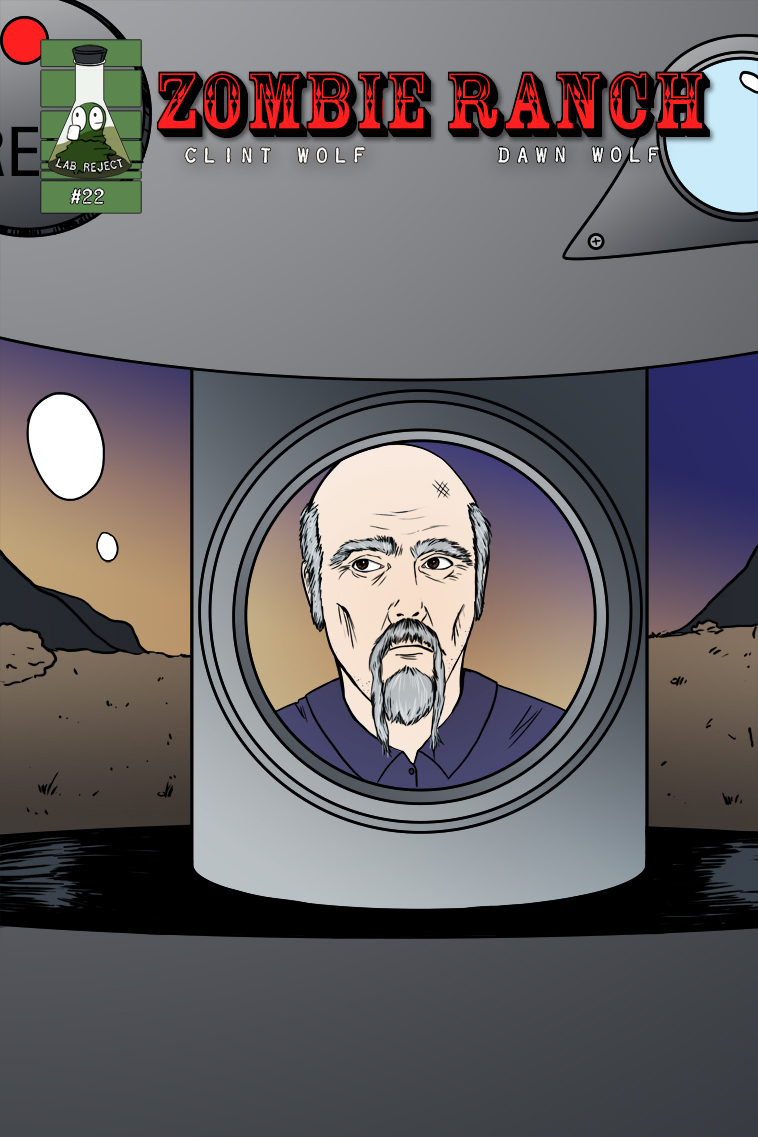

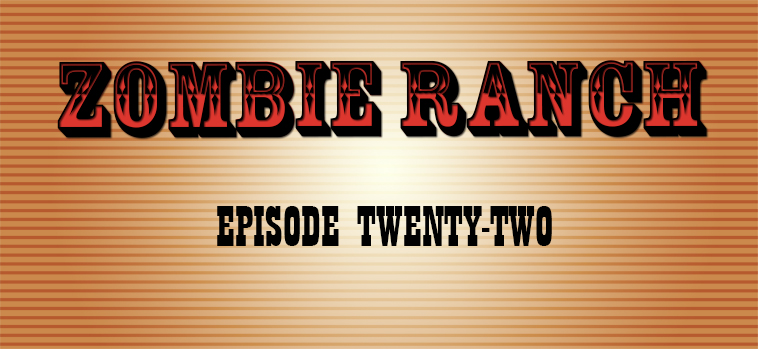
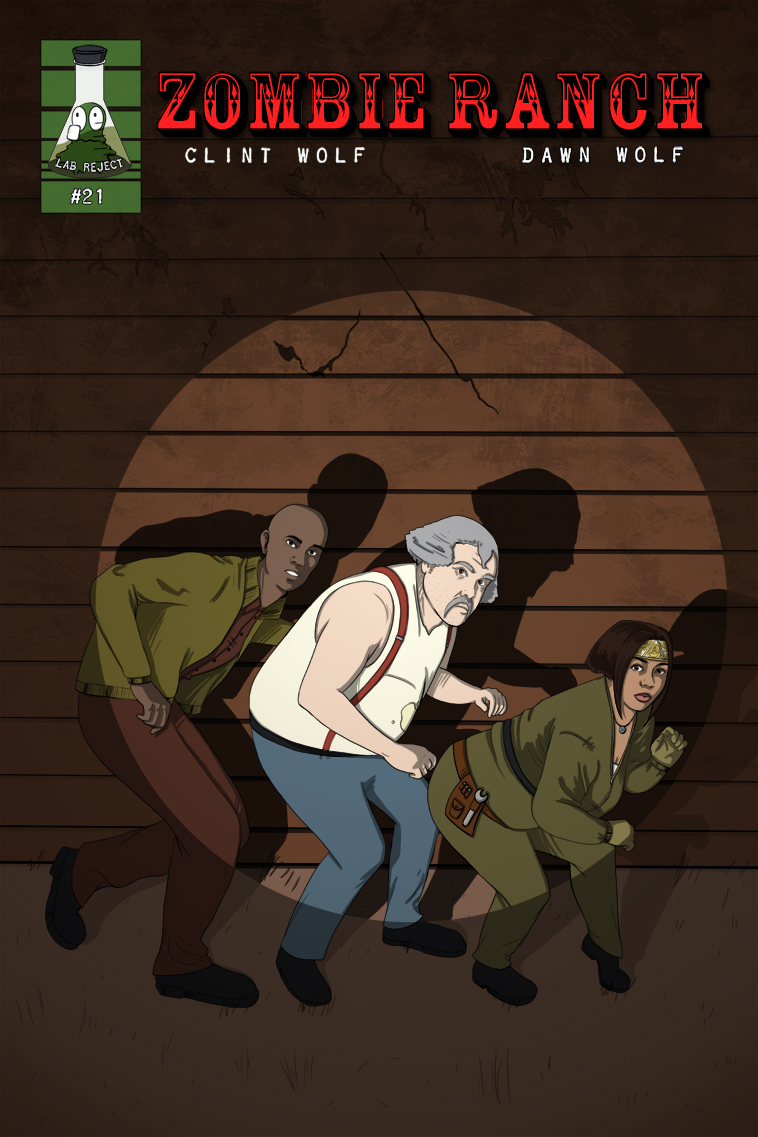
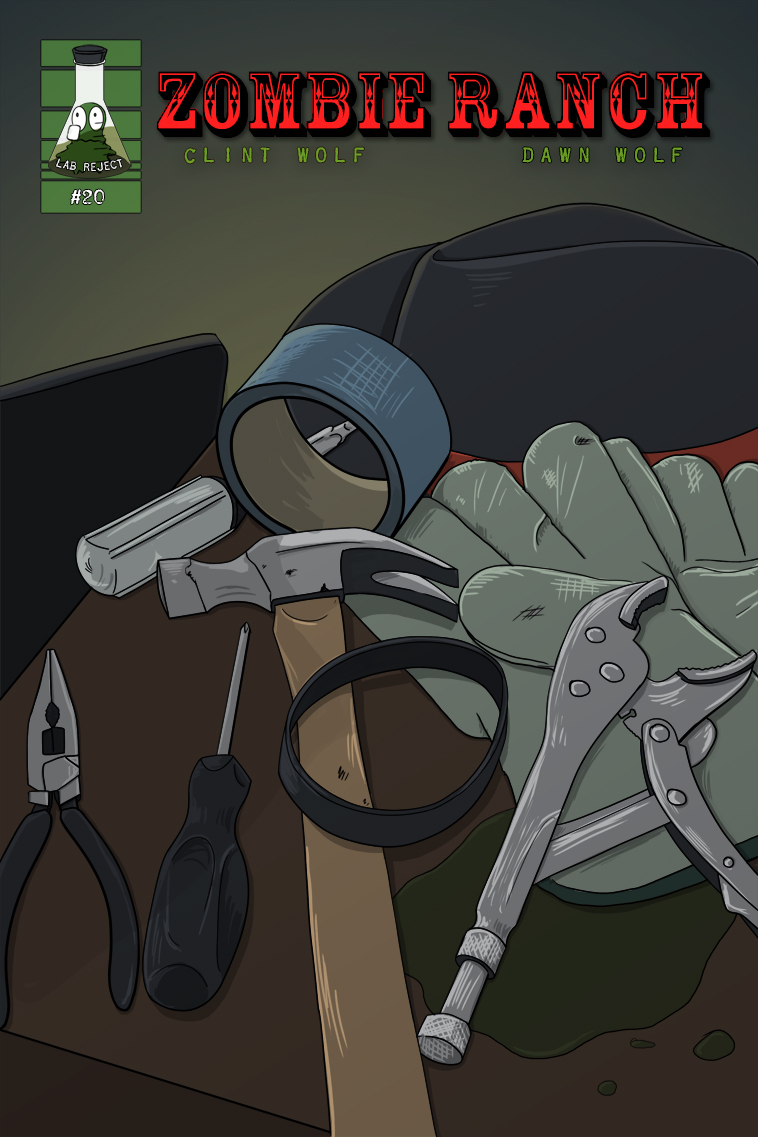
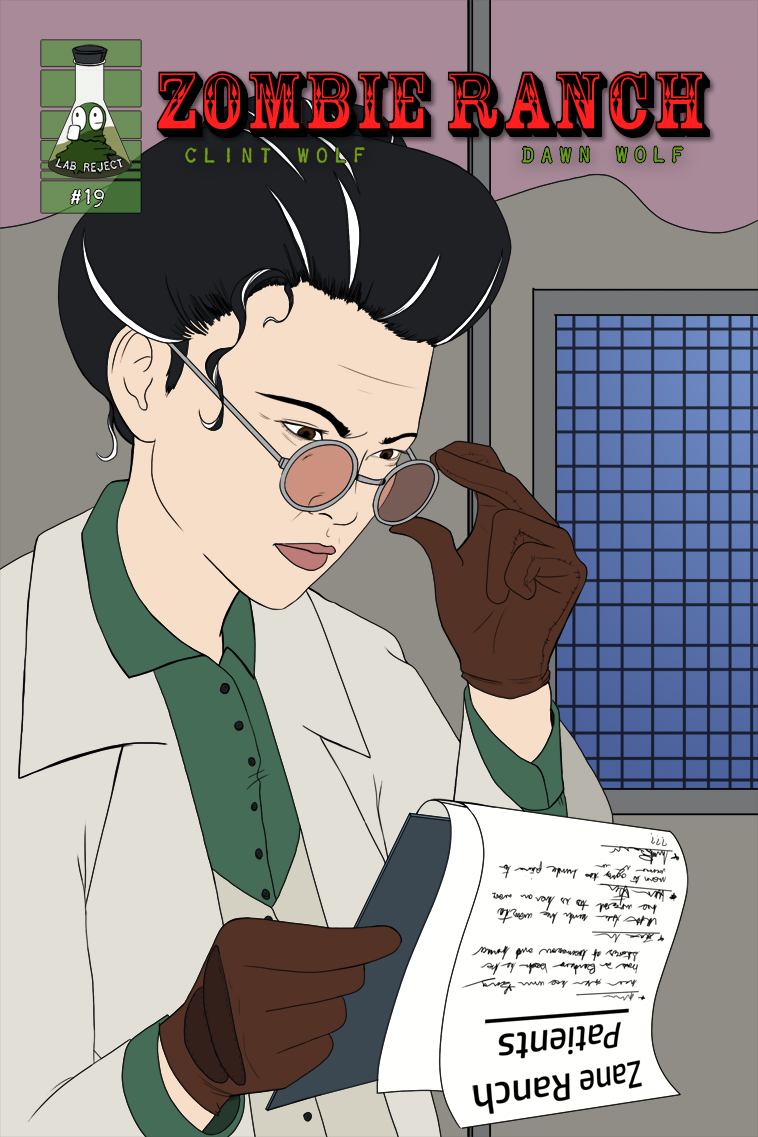
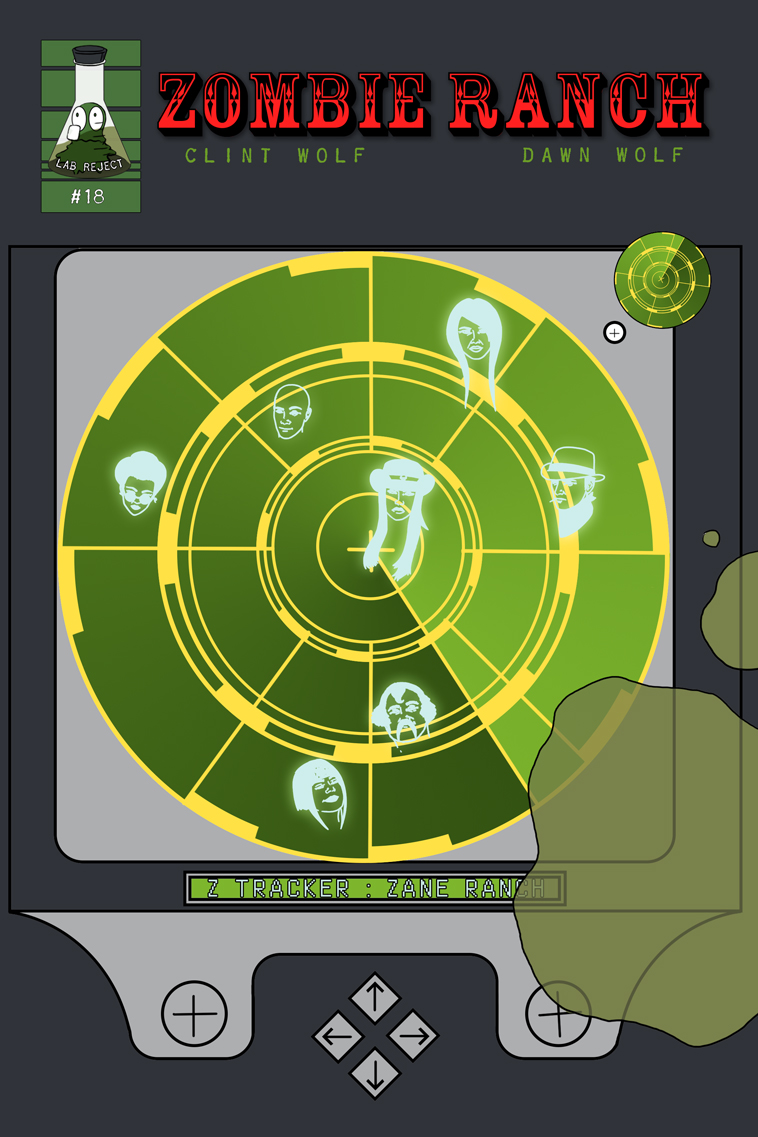
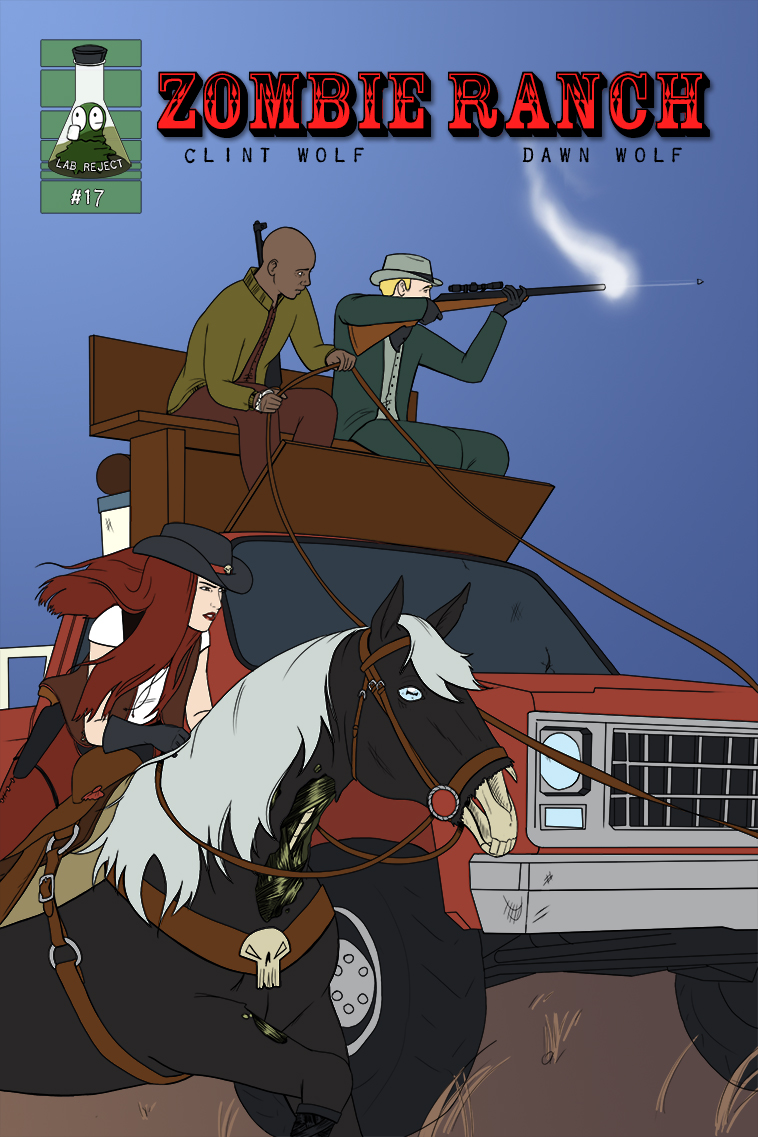
5 thoughts on “Issue 22 Cover”
Dr. Norman (not a real doctor)
Ooohhh … He looks – desperate.
Zombatar
No hat. He lost his hat. Which had a lot of his personality. Alert! Alert! We have a Lost Hat emergency! This is Not a Drill! Alert! Alert!
Scarsdale
Hang in there, I’m a retired fireman, and those pictures/videos have me sweating… The closest thing to a forest fire I ever fought was when a stupid tried to burn raked leaves on a windy day. 4 houses! Mostly grass and bush fires but, yeah.
Clint
Good news, we are back at home and there was a home to return to. It’s been a crazy week and a serious near miss seeing as several other homes on our block burned. Terrible stuff but the Ranch persists.
Honzinator
Welcome back.
My mom’s whole town, Monrovia, seems to have survived so far, too, but it ain’t over yet.